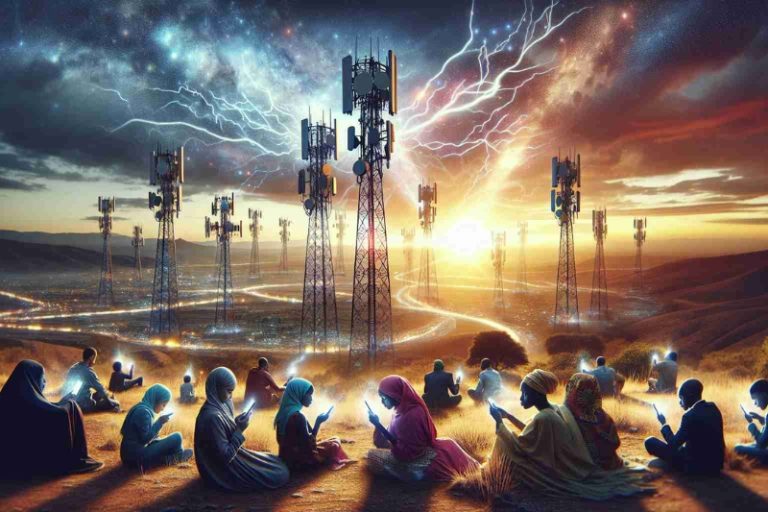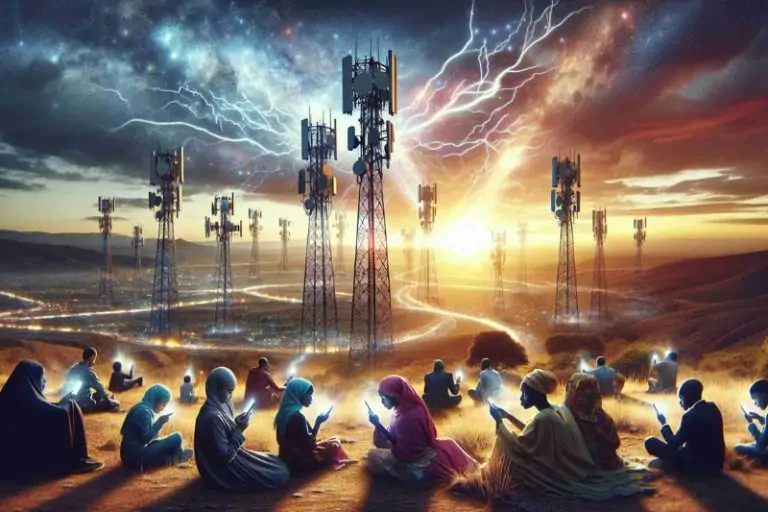

mobile marvel how africas connectivity reshapes economies
Africa is witnessing an unprecedented surge in its mobile economy, marking a pivotal moment as the continent rapidly embraces the digital era. The transformative power of mobile connectivity is not merely reshaping lifestyles but also catalyzing economic growth across the region.
At the heart of this revolution is the remarkable rise in internet adoption, propelling Africa to host over 50% of the world’s fastest-expanding economies. The year 2023 witnessed a watershed moment with the mobile industry contributing a staggering $170 billion to Sub-Saharan Africa’s GDP, capturing an 8.1% total share. Mobile penetration rates, currently at 43%, are poised to skyrocket to 88% by 2030, driven by the proliferation of smartphones and the rapid expansion of high-speed 4G/5G networks.
Contrary to global economic downturns, Africa’s video gaming market and online casinos are experiencing vibrant growth. South Africa stands out as a beacon of this trend, projected to see a remarkable 12% gaming Compound Annual Growth Rate (CAGR) from 2021 to 2026. The launch of localized casinos, a surge in passionate indie developers, and an unprecedented demand for top gaming titles collectively contribute to this thriving market.
Mobile connectivity has not only transformed entertainment but has also revolutionized education across the continent. Over 150 EdTech startups are now operational across 25 African countries, leveraging scalable e-learning platforms to deliver creative and affordable solutions to schools and universities. The global EdTech boom in 2020 catalyzed significant investments in this previously struggling regional industry.
One of the most impactful outcomes of the mobile revolution is the aggressive promotion of financial inclusion through mobile payments. Kenya’s M-Pesa system, a globally recognized success, showcases the immense potential of mobile money in profitably banking the unbanked at scale. As data costs decrease and budget-friendly device models become commonplace, digital transactions without formal bank accounts become increasingly accessible.
As data costs witness a precipitous fall and budget-friendly smartphone models become ubiquitous, technology adoption is set to accelerate even further. In Algeria, for example, 1 GB of mobile data now costs a mere $0.48, a stark contrast to the elevated global average of over $3. The introduction of affordable smartphones, exemplified by a recent $160 Airtel Rwanda release, further enhances accessibility.
With 60% of Africans aged below 25, the younger generations are at the forefront of driving the adoption of modern gadgets and services. According to the United Nations, Africa’s youth population is projected to reach a staggering 2.4 billion by 2050. This monumental demographic shift positions Africa as a unique environment where youthful enthusiasm propels the adoption of cutting-edge technologies, setting it apart from ageing societies.
As mobile penetration widens forcefully in the coming decade, Africa’s swelling connectedness becomes the key to unlocking promising new socio-economic possibilities for both citizens and businesses alike. The dynamic landscape, fueled by technological advancements, presents a landscape of opportunity that positions Africa as a vital player in the global digital economy.
The U.S.-based driver training company Zutobi analyzed road safety worldwide and found South Africa stays last in driving danger since…
The Basketball Africa League (BAL) returns for its 2025 season with exciting changes and developments. Since 2019 the NBA-linked basketball…
The Somali president supports their military forces to eliminate the threats from Al-Shabaab, ISIS, and Al-Qaeda. The Somali National Army…
UAE President Sheikh Mohamed bin Zayed Al Nahyan held talks with President Faustin Archange Touadéra of the Central African Republic…
African football teams struggle intensely in the World Cup Qualification rounds to earn their place on the international football stage.…
The journey toward the 2026 FIFA World Cup is rapidly intensifying for all African teams, who now hold a historical…
This website uses cookies.